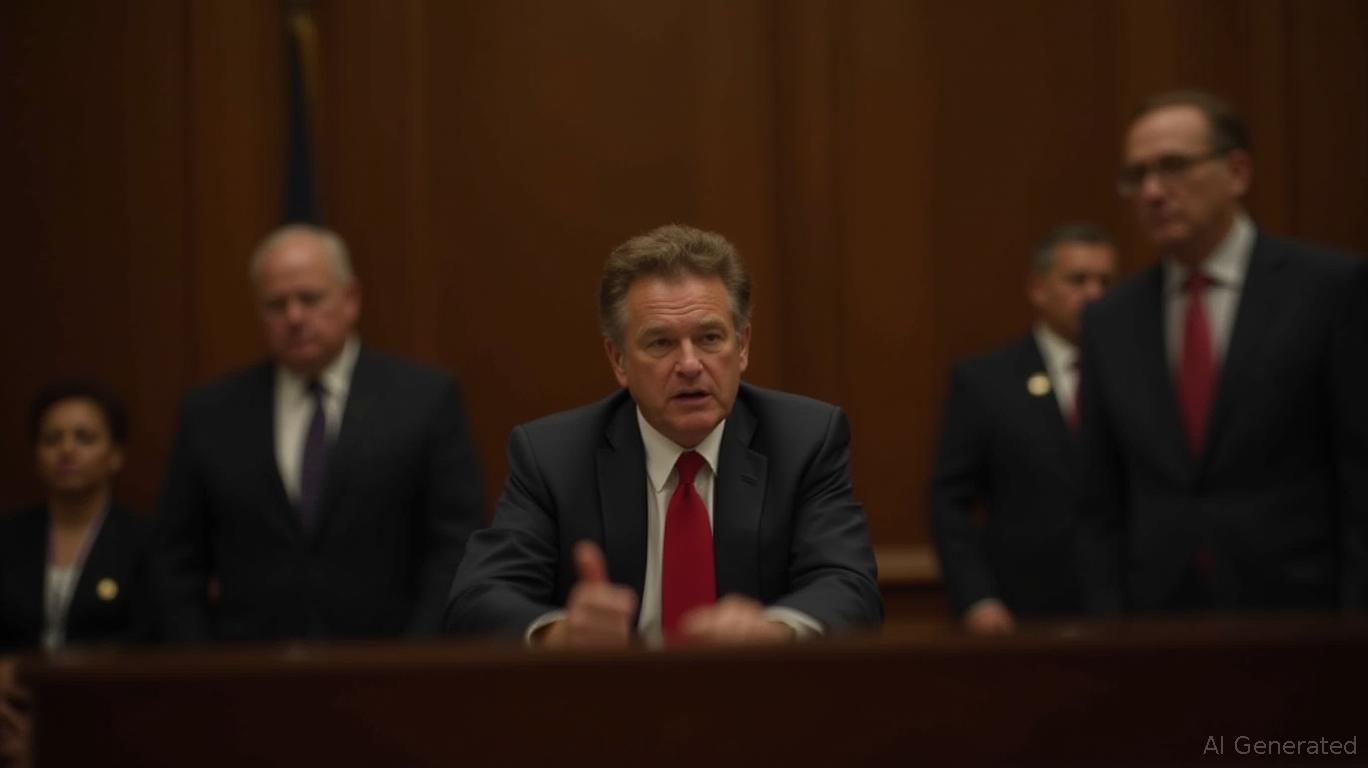"Trump's Lawsuit Pits DOJ Against Itself: Former Lawyers Decide His Claims"
- Trump sues DOJ for $230M over 2016 Russia probe and 2022 Mar-a-Lago search, alleging rights violations and malicious prosecution. - DOJ faces ethical conflict as current leaders previously served as Trump's defense attorneys in the same cases he now contests. - A 2024 federal judge dismissed the case, but Trump claims damages would fund charity or White House renovations, calling it "justice," not personal gain. - Ethics experts condemn the unprecedented conflict of interest, warning it risks public trus
Former President Donald Trump has initiated legal action against the U.S. Department of Justice (DOJ), demanding $230 million in damages. He claims his rights were infringed upon during federal probes into his 2016 campaign’s alleged Russian connections and the 2022 search of his Mar-a-Lago residence for sensitive documents, as reported by several sources[1]. The complaints, filed through an administrative channel generally used to settle disputes before court proceedings, expose a significant ethical dilemma: the DOJ is now overseen by individuals who previously acted as Trump’s defense lawyers in the same matters he is now disputing[2].
The initial complaint, submitted at the end of 2023, requests restitution for the FBI’s investigation into Russia and the special counsel’s inquiry, which did not find evidence of conspiracy but still placed Trump under heavy scrutiny[1]. The second, filed in mid-2024, alleges that the FBI breached Trump’s privacy during the Mar-a-Lago search in 2022 and accuses the agency of “malicious prosecution” for charging him with improper handling of classified materials after his presidency[2]. In 2024, a federal judge dismissed the lawsuit, and after Trump’s return to office, the DOJ withdrew its appeal[3].

This scenario has sparked strong criticism from ethics specialists, who describe it as a unique and troubling conflict of interest. “The ethical dilemma here is extremely basic and fundamental,” commented Bennett L. Gershman, a Pace University ethics professor. “Having DOJ officials—who previously represented him—decide the outcome of his claim is so strange, it almost defies belief[1].”
Trump’s compensation request is now complicated by the DOJ’s current leadership, which features former defense attorneys. Deputy Attorney General Todd Blanche, Trump’s former lawyer in the Mar-a-Lago matter, and Associate Attorney General Stanley Woodward Jr., who represented Trump’s co-defendant Walt Nauta, are among those who could potentially authorize a settlement[4]. According to The New York Times, any financial settlement would likely need Trump’s own sign-off, and he has joked about the paradox of “paying myself” damages[2].
At a White House event, Trump characterized the dispute as an issue of fairness rather than personal enrichment. “I suffered significant harm,” he stated, noting that any awarded funds would be donated to charity or used for White House renovations[1]. He also mentioned the possibility of using the money to build a new ballroom, a project already under consideration as part of larger restoration plans for the White House[6].
The DOJ has refused to discuss the specific claims but emphasized that its officials act in accordance with advice from career ethics experts[7]. A department spokesperson explained that administrative claims are usually settled privately, with any payouts coming from public funds[5].
This dispute highlights ongoing concerns about the DOJ’s autonomy and the risk of political interference in legal matters. While Trump’s attorneys have dismissed the investigations as “partisan witch hunts,” opponents warn that the president’s actions could undermine confidence in the judicial system[6].
Disclaimer: The content of this article solely reflects the author's opinion and does not represent the platform in any capacity. This article is not intended to serve as a reference for making investment decisions.
You may also like
Solana News Today: Solana ETFs Attract Investments While Bitcoin and Ethereum ETFs See $437M Outflow
- Solana (SOL) fell to $135.60 in November 2025 amid bearish trends, but new ETFs drove inflows surpassing Bitcoin/Ethereum outflows. - Bitwise's BSOL ($365M) and Fidelity's FSOL (0.25% fee) led competition, offering institutional-grade staking yields (~7%) to attract investors. - BlackRock avoided Solana ETFs, prioritizing Bitcoin/ETH due to altcoin liquidity concerns, despite $437M outflows in its own crypto ETFs. - Rising Solana futures open interest and fee waivers ($1B threshold) highlight ETF-driven

Retail vs. whales: Who actually drives the Santa rally?

Ethereum News Update: Crypto Market Divides: Stability or Speculation Amid BlockDAG’s Rapid Growth
- Dogecoin (DOGE) maintained top-ten crypto status in early November 2025 amid market volatility, contrasting with Chainlink's (LINK) uncertain whale activity ahead of delayed U.S. CPI data. - BlockDAG (BDAG) raised $435M in its presale using hybrid Proof-of-Work/DAG architecture, with analysts projecting $0.3–$0.4 launch price and potential 3,000% returns. - Chainlink's price divergence from RSI and whale accumulation of 150,000 LINK ($2.36M) signaled possible trend reversal above $18.76 or bearish confir

Crypto Presale Comparison November 2025: Hyper, BlockDAG, Remittix, Little Pepe, and Layer Brett
